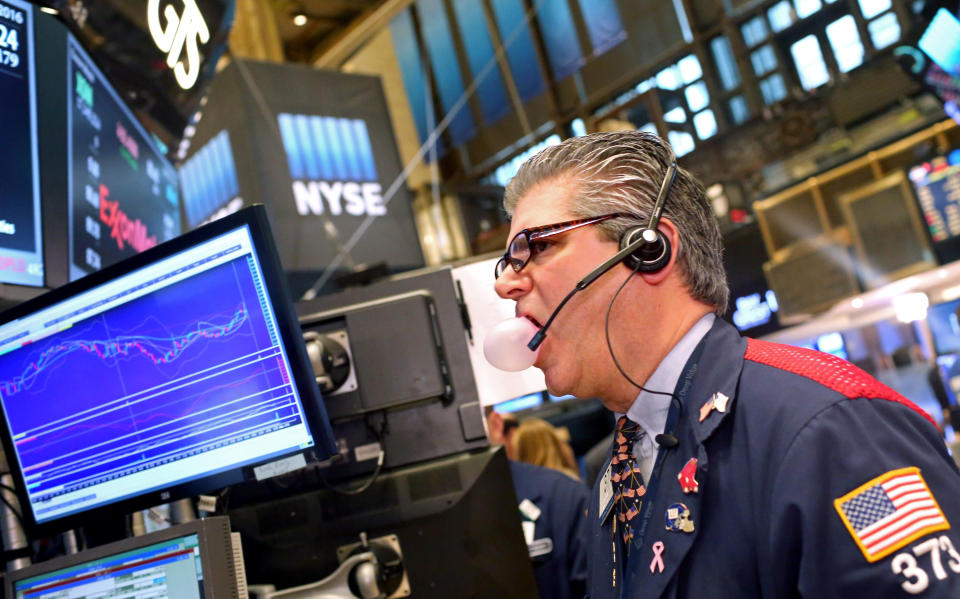After Friday's tech stock tanking there's no time to wait

To the Johnny-come-latelies of the FANG stocks, this one's for you. I don't want you to fight the tape, but this tech rally is so 1999. It took a while for the 1990s stock market to kick into high gear. In 1990, investors still had a lot they were upset about:
The crash of '87, a brutal real estate recession that crushed bank stocks.
The ongoing savings-and-loan crisis investigation (remember the Keating Five scandal?)
The trials of Ivan Boesky (the poster child of insider trading) and Michael Milken (the face of the '80s leveraged-buyout boom.)
The first Gulf War.
And a nasty Fed rate-hike cycle in 1994, led by then–Fed chairman Alan Greenspan.
It all conspired to keep a lid on investor enthusiasm and stock prices. I was there, and I can tell you that until Netscape went public in 1995 with a rip-roaring IPO pop, no one on the Street was thinking about the internet as some sort of revolutionary thing that would change the world as we knew it.
After the Netscape IPO, the tech boom literally boomed. An enthusiastic mutual fund manager on TV could move a tech stock up 10 percent in a day by naming it as a stock in his or her portfolio. Tech mutual funds were being churned out daily, led by the Munder NetNet Fund. The fund used to run TV commercials: "Imagine buying groceries online instead of waiting in line."
If you don't remember all of this, you need to at least understand it with today's hottest tech stocks going parabolic.
We talk about FANG (Facebook , Amazon , Netflix and Alphabet [formerly known as Google]) stocks a lot, but the acronym has come to represent a larger cohort of stocks, including NVidia , Salesforce.com , Skyworks , Adobe and others. Just the biggest five tech companies make up almost one half of the Nasdaq 100. Apple , Microsoft , Amazon and Facebook make up more than 10 percent of the S&P 500 . Sorry fans of the S&P 500 Index -mimicking funds, but you're plowing much more money into these stocks than you realize.
Assets I manage are in some of these, so no complaining here about having a good year so far. But I've been at this for a long time, and I know it ends.
How to handle the end of a tech run
How do I handle it? By selling off little pieces of these winners at a time, by rebalancing into other sectors outside of technology, and cash . If I miss upside because of this, so be it. The latter side of the year 2000 was painful for investors. WorldCom, Qwest, Global Crossing, Lucent, JDS Uniphase, AOL, Yahoo, Excite and other hotties of their day, which had multi-hundred billion-dollar valuations, literally saw their values evaporate. Ironic, then, that the Yahoo (now also home of AOL) fire sale to Verizon was approved this week.
Some investors don't even realize that Google and Facebook didn't exist in 2000.
P/E ratios of ETFs
NASDAQ Internet Portfolio (PNQI): 48.28
Nasdaq 100 ETF (QQQ): 24.35
Tech Sector SPDR (XLK): 22.21
S&P 500 ETF (SPY): 19.87
Dow ETF (DIA): 17.90
(Source: Morningstar)
Turns out that just because a new way of doing things comes into being, it's no guarantee of future profits. When the small- and mid-cap tech stocks started to break down in very late '99 and early 2000, investors moved more of their money into stocks such as Cisco and Microsoft, the sellers of the "picks and shovels" of the internet. It was a better business model than just plain internet stocks. But to this day, those two stocks still haven't reached the market caps they had back then.
YTD returns in ETFs
NASDAQ Internet Portfolio (PNQI): 29.60 percent
Nasdaq 100 ETF (QQQ): 21.43
Tech Sector SPDR (XLK): 19.23
S&P 500 ETF (SPY): 9.53
Dow ETF (DIA): 8.28
(Source: Morningstar)
Today, investors are crowding into the FANG stocks as if they are the safe ones. Today's winners are about social media, artificial intelligence and self-driving cars. I personally believe those three industries will be tremendous; social media already is. I use "boost post" on Facebook, "Promote" on Twitter, and I hired my assistant from LinkedIn "Jobs." So I'm living proof that these services for business work. I also believe humankind hasn't come close to tapping the full potential it can extract from technological advances. NVidia has a chip so powerful it can be used to make one server as powerful as 40 servers that are in use today. This is truly an astonishing technological feat.
More from ETF Strategist:
Jack Bogle's simple rule to stop worrying about retirement risk
The big Tesla bet that many ETFs won't make
The death of active funds explained in one article
But I am a student of the market, and lessons I've learned hardest are the ones learned best. Odds are that even if we see the mass adoption of artificial intelligence and self-driving cars, the stock market winners of that golden era will be different than the ones we are betting on today.
Could today be the day we remember as the one in which the tech bubble burst? I certainly don't think it'll be that obvious until well after the fact. But let's not get too carried away.
— By Mitch Goldberg, president of investing firm ClientFirst Strategy

 Yahoo Finance
Yahoo Finance 
